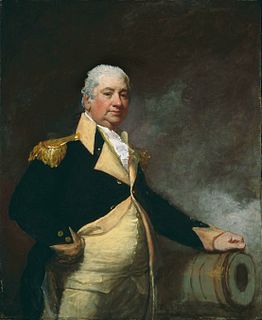A Quote by Neil Macdonald
It's a lovely thing to see intelligent argument, unbending principle and policy go up against demagoguery, nativism and vulgar name-calling.
Related Quotes
There is a vulgar persuasion, that the ignorance of women, by favoring their subordination, ensures their utility. 'Tis the same argument employed by the ruling few against the subject many in aristocracies; by the rich against the poor in democracies; by the learned professions against the people in all countries.
Because we aren't certain about the effects of GMOs, we must consider one of the guiding principles in science, the precautionary principle. Under this principle, if a policy or action could harm human health or the environment, we must not proceed until we know for sure what the impact will be. And it is up to those proposing the action or policy to prove that it is not harmful.
When I see this, you know, 'Crooked Hillary,' or I see the, 'Lock her up,' it's just ridiculous. It is ridiculous. But I just - you know - it is beneath the character of the kind of dialogue we should have. Because we got real serious problems to solve. And look, most of us stopped the name-calling thing about fifth grade.
Philosophers should consider the fact that the greatest happiness principle can easily be made an excuse for a benevolent dictatorship. We should replace it by a more modest and more realistic principle - the principle that the fight against avoidable misery should be a recognized aim of public policy, while the increase of happiness should be left, in the main, to private initiative.
































